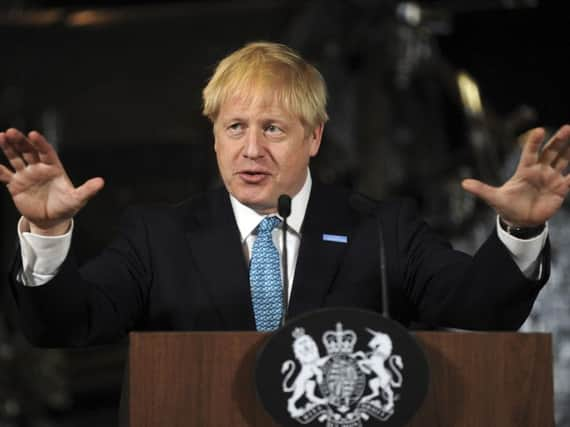Loan charge places 'immense strain' on families as protesters prepare to march on Parliament


Read more
>Why it's time to suspend the loan charge >Fears over no-deal Brexit's impact on house prices Members of the Loan Charge Action Group plan to meet outside the House of Commons tomorrow morning as part of a national campaign which aims to halt the loan charge.
A candlelit vigil is also planned this afternoon outside the Whitehall office of the HMRC to raise public awareness of the loan charge, which campaigner say places a threat to the mental health of thousands of people.
Advertisement
Hide AdAdvertisement
Hide AdIn a statement the group said: “Campaigners from the Loan Charge Action Group will greet Boris Johnson and MPs returning from summer recess.
“They are calling on the Prime Minister ‘to keep your promise Boris’ to honour his commitment to suspend the loan charge and set up an independent review.
“The loan charge legislation is a punitive retrospective tax policy that is threatening UK contract workers and their families with bankruptcy.”
The loan charge was introduced in response to the Treasury’s concerns about “disguised remuneration schemes” which involved individuals being paid through loans, usually via an offshore trust in a low or no tax jurisdiction, which they did not have to repay. According to the Treasury, the loan charge means people paying themselves through loans will have to contribute their “fair share” to pay for our public services.
Advertisement
Hide AdAdvertisement
Hide AdWorkers from a wide range of professions have been hit with large tax bills, which in some cases date back to 1999.
The All-Party Parliamentary Group on the Loan Charge (APPG) argues that the charge is retrospective and overrides taxpayer protections - claims which have been disputed by the Treasury.
At a hustings event, Boris Johnson said of those affected by the loan charge: “It seems superficially unjust that they should be retrospectively pursued... they need an independent review”.
The APPG said on Twitter: “At least 100 MPs have written individually to (the Chancellor) Sajid Javid and Boris Johnson calling for a suspension of the loan charge and the independent review the Prime Minister agreed is necessary.”
Advertisement
Hide AdAdvertisement
Hide AdThe APPG said that this support was on top of 214 Parliamentarians who have signed an open letter calling for a loan charge review.
The MPs who have written to Mr Johnson include Richard Harrington, the Conservative MP for Watford, who said: “On behalf of my constituents facing the Loan Charge, I’m writing to urge you to reconsider this highly unfair policy, pause the rollout and undertake a review into the way people have been treated throughout this process.
“I hear on a near daily basis from constituents about the immense emotional, mental and physical strain this is putting on them and their families. At the time, my constituents were doing what they believed to be perfectly legal on the advice of tax professionals - who remain active without consequence - and in full transparency with HMRC.”
A Treasury report into the loan charge said: “The Government considers that the rationale for this charge is clear and robust, and has been consistently clear there is no intention to change the relevant legislation which has been enacted by Parliament.
Advertisement
Hide AdAdvertisement
Hide Ad“The Government is clear that the legislation is not retrospective. It does not change the tax position of any previous year, the tax treatment of any historic transaction, or the outcome of any open compliance checks.”
An HMRC spokesman has previously stressed that support was available to people affected by the loan charge.
He added: “We have committed to giving people as long as they need to pay the loan charge as we completely understand that facing a large tax bill can be difficult and stressful. If people are worried, they should get in touch with HMRC on 03000 599110.”
Mel Stride, the former Financial Secretary to the Treasury, said the loan charge was not retrospective.
Earlier this year, he said: “HMRC very, very rarely has a situation where somebody is placed in bankruptcy. “